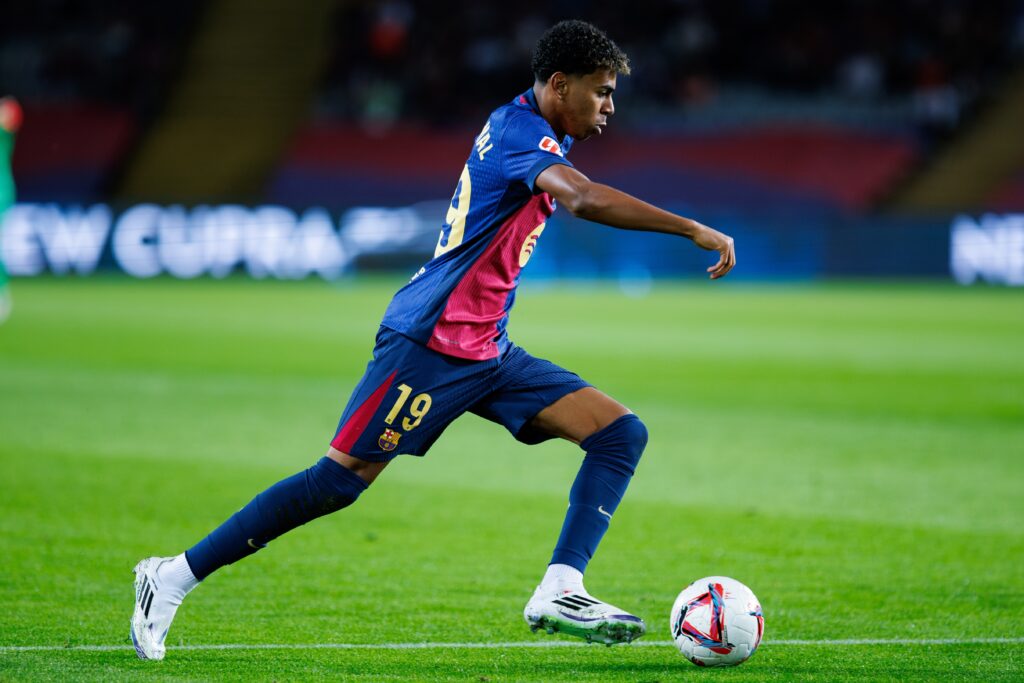In 1995, a seasoned football expert doubted that young players could reach great heights. But Manchester United’s youthful stars quickly proved him wrong by winning a famous domestic double. Today, Barcelona’s young team, guided by coach Hansi Flick, is drawing similar praise and comparisons to that legendary generation. Their recent success includes winning La Liga with a strong 2-0 victory at Espanyol, following a Copa del Rey win in April.
A Bold New Chapter for Barcelona
Under Flick’s leadership, Barcelona has taken risks and played with boldness and courage. This daring style has brought excitement back to the club and won admiration from football fans worldwide. Many now see young talents like 17-year-old Lamine Yamal, 18-year-old Pau Cubarsi, and 22-year-old Pedri as the next stars following in the footsteps of Pep Guardiola’s famous team.
Youth and Necessity Drive Change
Barcelona’s squad is the youngest in La Liga, with an average age of just 25. The club’s severe financial problems forced it to rely heavily on homegrown players from its famed academy. Unable to register new players for some time, Barcelona turned to its young stars out of necessity. But it was Flick’s clear vision and faith in youth that turned this challenge into an opportunity.
Changing the Culture from Inside
When Flick arrived from Bayern Munich and the German national team, he found a squad lacking confidence. Key players like Robert Lewandowski, Raphinha, and Frenkie de Jong struggled under previous coach Xavi’s leadership. Raphinha barely managed to play a full hour in matches. Lewandowski was asked to play in unfamiliar ways, often with his back to the goal. De Jong felt the club was looking to sell him.
Flick quickly put his trust in these players, making them central to his game plan. Lewandowski led with 25 goals this season, while Raphinha scored 18. At the same time, Flick gave young players real responsibility and freedom. Gavi, Yamal, Alejandro Balde, and Marc Casado gained the coach’s trust, even deciding what music played in the dressing room. This trust gave the players confidence, fueling a bold, attacking style on the field.
Flick also kept close tabs on bench players, making sure they stayed ready. He promised them that their moment to shine would come, especially as injuries happened during the long season.
Trust Over Transfers
Unlike many big clubs, Barcelona made very few signings. Only Dani Olmo and Pau Victor joined in the summer, and no new players arrived in winter. Flick showed strong belief in his current squad and consulted players before making rotation decisions. This openness strengthened the bond between coach and players.
Despite facing intense media pressure, Flick stayed honest and consistent. His toughest challenge came just before Christmas when the team earned only five points from seven games. But Flick stayed calm and held onto his approach.
Defining Moments Created Leaders
Flick found his strongest lineup during a thrilling 5-4 Champions League win over Benfica. That night, Raphinha became a key voice for the team. Flick also looked for leaders in defense and found one in veteran defender Inigo Martinez.
Though Martinez had never played a high defensive line before, he adapted well. At 33, he pushed teammates and strictly followed Flick’s detailed instructions, even when the tactics felt new to him.
Lamine Yamal, the teenage sensation, was carefully guided by Flick. While Yamal wanted to be involved and shine, Flick reminded him to focus on defensive duties and sometimes benched him when needed. The approach paid off. In the recent Clasico against Real Madrid, Yamal recovered more balls than many top defenders and midfielders.
One Team, One Goal
Barcelona’s success comes from unity. Players like Yamal, Raphinha, and De Jong lead a team with a clear shared mission. Flick designs the strategy, but the players execute it with passion and belief. Though Flick is the leader, each player fights for the team as if it were their own cause.
Discipline and Precision
Flick enforces strict discipline. Defender Jules Kounde was benched three times for being late. Goalkeeper Inaki Pena missed an important match after showing up late. Flick also banned flashy clothing, requiring everyone—from players to club directors—to wear official club gear on away trips.
Flick himself has undergone personal change. A recent hip operation freed him from chronic pain, allowing him to fully focus on coaching.
Challenges Ahead
Though Barcelona has made great strides, challenges remain. The team conceded 24 goals in 14 Champions League games and failed to reach the final. Their strong attacking style sometimes leaves them vulnerable at the back. Next season, the goal is clear: gain better control of games without losing their exciting flair.
Flick is key to the club’s future. With only one year left on his contract, he has received many offers to extend it. But Flick prefers to focus on short-term success and steady progress rather than committing long-term right now.
A New Era for Barcelona
What started as a move born from financial hardship has turned into a football revolution. Under Hansi Flick, Barcelona’s young stars have grown into champions who play with boldness, unity, and fearless passion. The club’s future looks bright, thanks to the energy and vision of its youthful musketeers.


